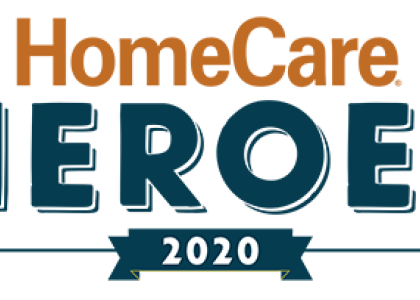WASHINGTON, D.C. (February 11, 2019)—The Centers for Medicare & Medicaid Services (CMS) released CMS-9115-P, the Interoperability and Patient Access Proposed Rule. The new rule outlines proposed policy changes to the MyHealthEData initiative to improve patient access to and advance electronic data exchange and care coordination throughout the health care system. CMS is also releasing two requests for information (RFIs) for feedback from providers in post-acute care settings.
Seema Verma
WASHINGTON, D.C. (February 5, 2019)—The Centers for Medicare & Medicaid Services (CMS) launched a new app that gives consumers a modernized Medicare experience with direct mobile access to some of the most-used content on medicare.gov.
(December 4, 2018)—On October 26, 2018, CMS issued Contract Year (CY) 2020 Medicare Advantage and Part D Flexibility Proposed Rule CMS-4185-P. The rule updates Medicare Advantage (MA) and Medicare Part D by promoting flexibility and innovation so that MA and Part D sponsors are empowered with the tools to improve quality of care and provide more choices.
(November 1, 2018)—Brightree-connected providers now have two additional functionalities at their service. Parachute Health and PlayMaker Health each announced integrations.
(October 24, 2018)—Former commissioner of Maine Department of Health and Human and Services (DHHS), Mary Mayhew, has been tapped by the Trump administration as the deputy administrator for the Center for Medicaid and CHIP Services.
ATLANTA (September 20, 2018)—Industry advocate and leader Regina Gillispie, president and owner of West Virginia-based Best Home Medical, will be honored as the recipient of the 2018 Van Miller Homecare Champion Award at the upcoming Medtrade show in Atlanta, Georgia.
WASHINGTON, D.C. (August 30, 2018)—The Centers for Medicare & Medicaid Services (CMS) released an evaluation report for the first performance year of the Innovation Center’s Next Generation Accountable Care Organization (ACO) Model showing promising early results.
WASHINGTON, D.C. (August 23, 2018)—The Centers for Medicare & Medicaid Services (CMS) awarded $8.6 million in funding to 30 states and the District of Columbia to provide state insurance regulators with the opportunity to enhance states’ ability to strengthen their respective health insurance markets through innovative measures that support market reforms and consumer protections under the Patient Protection and Affordable Care Act (PPACA).
WASHINGTON, D.C. (August 10, 2018)—The Centers for Medicare & Medicaid Services (CMS) has released a proposed rule to overhaul the Medicare Shared Savings Program. The program was established under the Affordable Care Act and launched in 2012. The majority of Medicare’s Accountable Care Organizations (ACOs) operate under the program.
(July 24, 2018)—In a July 19 blog post, the Centers for Medicare & Medicaid Services announced the creation of the CMS Chief Health Informatics Officer (CHIO). The goal of the CHIO’s role is to drive health IT and data sharing to enhance health care delivery, improve health outcomes, drive down costs and empower patients, according to CMS. The role will be filled with a leader in the health care IT space and serve on CMS Administrator Seema Verma’s leadership team.
WASHINGTON, D.C. (June 27, 2018)—The Centers for Medicare & Medicaid Services (CMS) announced new and enhanced initiatives designed to improve Medicaid program integrity through greater transparency and accountability, strengthened data, and innovative and robust analytic tools.
WASHINGTON, D.C. (June 20, 2018)—The Centers for Medicare & Medicaid Services (CMS) issued a Request for Information (RFI) seeking recommendations and input from the public on how to address any undue impact and burden of the physician self-referral law (also known as the Stark Law), focusing in part on how the law may impede care coordination, a key aspect of systems that deliver value.
WASHINGTON, D.C. (June 6, 2018)—Data released this week by the Agency for Healthcare Research and Quality (AHRQ) show continued progress in improving patient safety, a signal that initiatives led by the Centers for Medicare & Medicaid Services (CMS) are helping to make care safer.
By Kristin Easterling
(May 10, 2018)—After months of advocacy from AAHomecare and other industry stakeholders, the Office of Management and Budget (OMB) and CMS have cleared the Interim Final Rule related to HME (CMS-1687-IFC) to increase fee schedule rates for certain DME items and services through 2018. Language in the recent Omnibus bill also urged the Administration to release the rule and move on relief for rural providers.
WASHINGTON, D.C. (May 8, 2018)—Today, the Centers for Medicare & Medicaid Services (CMS) released the agency’s first Rural Health Strategy intended to provide a proactive approach on health care issues to ensure that the nearly one in five individuals who live in rural America have access to high quality, affordable health care.
WASHINGTON, D.C. (April 24, 2018)—The Centers for Medicare & Medicaid Services (CMS) proposed changes to empower patients through better access to hospital price information, improve patients’ access to their electronic health records, and make it easier for providers to spend time with their patients.
WASHINGTON, D.C. (April 23, 2018)—The Centers for Medicare & Medicaid Services (CMS) announced that it has released the comments submitted by patients, clinicians, innovators and others in response to the CMS Innovation Center’s New Direction Request for Information (RFI).
Via CMS, WASHINGTON, D.C. (March 6, 2018)—Today, Centers for Medicare & Medicaid Services (CMS) Administrator Seema Verma announced a new Trump Administration initiative—MyHealthEData—to empower patients by giving them control of their health care data, and allowing it to follow them through their health care journey.
WASHINGTON, D.C. (September 26, 2017)—The Partnership for Quality Home Healthcare (Partnership)—a coalition of home health providers dedicated to improving the integrity, quality and efficiency of home health care for our nation's seniors—today applauded a group of bipartisan U.S.
Medicare and Medicaid Need Innovation
Trump’s HHS seeks to encourage health care competition. (Seema Verma/Wall Street Journal)
—Via CMS—WASHINGTON, D.C. (August 15, 2017)—Today, the Centers for Medicare & Medicaid Services (CMS) announced a proposed rule to reduce the number of mandatory geographic areas participating in the Center for Medicare and Medicaid Innovation’s (Innovation Center) Comprehensive Care for Joint Replacement (CJR) model from 67 to 34. In addition, CMS proposes to allow CJR participants in the 33 remaining areas to participate on a voluntary basis.


